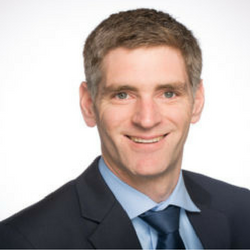SF Examiner: Trillium’s Will Lana Makes Case for Divestment in Op-Ed
The San Francisco Examiner published an op-ed authored by Will Lana, Trillium Asset Management Partner and Investment Manager titled, “Growing Evidence Supports Fossil Fuel Divestment SF Pension”. On August 9th, the board of the San Francisco Employees’ Retirement System (SFERS) is expected to vote on whether to divest all fossil fuel holdings from the pension fund. In response to recent public opposition against divestment, the op-ed cites a growing a number of studies showing that divesting from fossil fuels does not reduce risk-adjusted returns.
Growing Evidence Supports Fossil Fuel Divestment of SF Pension

The Board of Supervisors unanimously supported it. San Francisco’s Local 1021 SEUI asked for it. Former President Barack Obama and former UN Secretary General Ban Ki-Moon publicly encouraged it. Yet for The City’s pension to divest from fossil fuels, the ultimate decision belongs to the San Francisco Retirement Board, which will take a vote Aug. 9.
Opponents of divesting from fossil fuels regularly point to a study funded by the Independent Petroleum Association of America. This Compass Lexecon study is deeply conflicted and cannot be relied upon for obvious reasons.
Ideally, a study of a longer period would be completed by academics. Thankfully, such a study was conducted by Dutch Economists and Faculty the University of Groginen. It covered 88 years — from before the Great Depression to after the Great Recession. The result: “divestment did not reduce risk adjusted returns … these findings can be explained by the fact that fossil fuel company portfolios do not generate above-market performance and provide relatively limited diversification benefits.” The Dutch study cites three additional academic papers with consistent results.
With past performance supportive of divestment, detractors sometimes say Modern Portfolio Theory is inconsistent with fossil fuel divestment. This misses the forest for the trees. For ease of computation, Modern Portfolio Theory assumes away real world consequences of investment activity. The World Bank may see risk in “declining global food stocks and life-threatening sea level rise,” but Modern Portfolio Theory sees no risk. In this mathematical model, climate change and local air pollution are not variables, they are externalities.
When Warren Buffet, one of America’s most successful investors, said “don’t do equations with Greek letters in them” it was a direct shot at the blinders Modern Portfolio Theory can put on investors. Of course, these blinders are a shortcoming of the theory, not of fossil fuel divestment itself.
The Intergovernmental Panel on Climate Change is well aware of the formidable power such models can have in exacerbating climate change. In 2015 the IPCC wrote, “Decision-making about climate change is influenced by how individuals and organizations perceive risks and uncertainties and take them into account. They sometimes use simplified decision rules, overestimate or underestimate risks and are biased towards the status quo.”
In this instance, San Francisco should not overestimate the diversification benefits of owning fossil fuels, underestimate the portfolio risk posed by climate change, and let bias toward the status quo override evidence. As Nobel Prize recipient Al Gore said, “We have a carbon bubble … and this carbon bubble is going to burst”.
Thankfully, the SFERS Board is in a unique position to recognize that funding climate change isn’t good business. A sober look at the evidence shows fueling climate change hasn’t helped its retirees for a long while, and that trend is likely to accelerate rather than reverse in the years ahead.
You can also read the op-ed on sfexaminer.com
Contact: Caroline White, Communications Manager, cwhite@trilliuminvest.com
###







